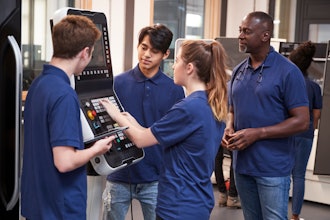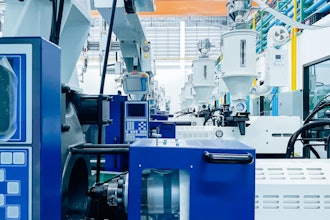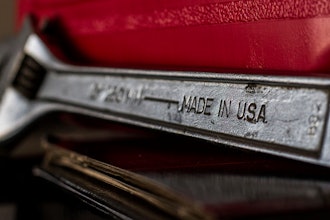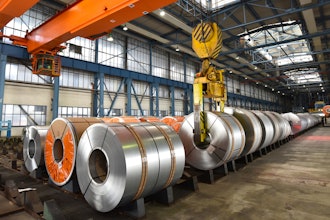
I’ve always followed AAM (Alliance for American Manufacturing) with interest over the years, partly because they take a rather fearless tact when responding to issues of significance in American manufacturing. If you think your business can stealthily shed American jobs in favor of production in some low cost country, think again – AAM is watching, and they’re not afraid to call you on the carpet to answer for it.
AAM’s president and CEO Scott Paul is one of the most candid voices in manufacturing, in my opinion, and so I was keen to interview him for a piece I was drafting on Millennials in manufacturing careers. Millennials bear the brunt of a lot of big business’s frustration with the workforce. Having trouble recruiting? It’s because Millennials don’t understand the promise of a career in the industrial sector. Turnover getting you down? It’s because Millennials aren’t loyal to a company. Can’t get anyone reliable for third shift? It’s because Millennials are scared of the dark.
Okay… I may have made up that last one, but you get the picture.
Part of the reason there is so much pressure to get this generation on-board is because the Baby Boomers, who encompass such a sizable number of manufacturing’s skilled trades, are on the verge of vacating those positions in favor of a golf course in South Florida. The Millennial generation will need to fill a hole that’s widening by the day – and many manufacturers don’t have a strategy in place to address the problem.
It turns out Scott Paul was keen to talk about Millennials as well and, just as I’d suspected, he wasn’t content to let manufacturers place all the blame on this much-maligned generation of 20-somethings.
“There’s just not a lot of introspective analysis that’s done on this. I think you have to inspire kids, and saying ‘come fill the skills gap’ is one of the least inspiring slogans I can imagine,” Scott said.
Scott reinforced what he sees as a shared responsibility between Millennials, their parents, and the manufacturing community itself. And while the former two groups need to take a hard look at job vacancies, training costs and salaries (at which point they might learn that manufacturing is a pretty good deal), the latter – established businesses – face the task of heightening the appeal of their industry.
“I think it’s incumbent upon manufacturers to de-mystify manufacturing and factory jobs,” he said, “and to present them in a way that Millennials can appreciate. You see the product of your work every day – which you don’t see with a lot of other occupations.” Secondly, cautioned Scott, many manufacturers are in a place where they haven’t done a lot of hiring, due to economic conditions, for nearly a decade. “You’re dealing with a whole new generation of workers, so simply putting an ad in the newspaper or going down to the high school and saying ‘hey, who’s in the shop class that I can get to come weld in my factory?’ is probably not an approach that’s going to work very well in this day and age.”
So before you sit down with your HR department and start taking swings at the lazy, entitled, narcissistic Millennials, take a deep breath. "A lot of studies show that they (Millennials) are not really that different from generations before in what they want for their lives—they just have a different background," said Andrew Challenger, a vice president at Challenger, Gray & Christmas, in a recent article for CNBC.
So if the problem isn’t them, is it us? Instead of wasting valuable time pointing fingers, Scott’s suggestion is manufacturers acknowledge that much about the job market has changed. For recruitment to succeed, “There has to be inspiration, adaptation, some serious partnerships, and changed expectations.”
Anna Wells is Executive Editor of IEN. Follow her on Twitter: @IndustrialAnna






















